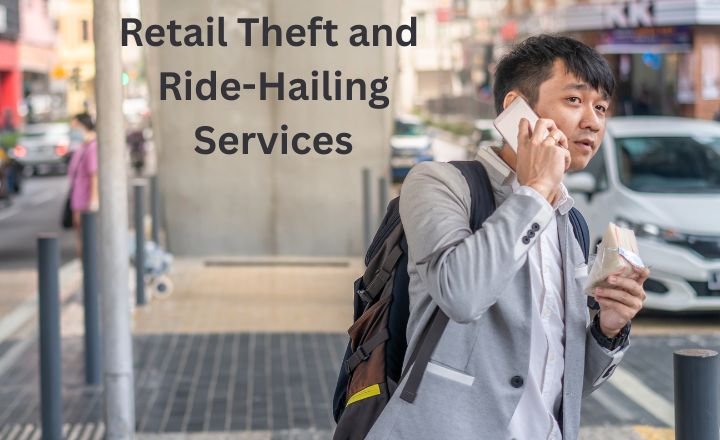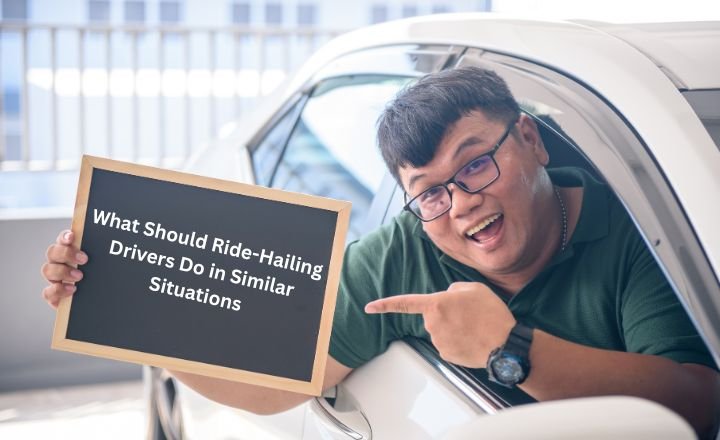In a fast-paced gig economy, Uber drivers often confront unexpected challenges that test their judgment. A notable incident recently occurred when an Uber driver refuses ride to shoplifter, drawing attention to the ethical quandaries that can arise during their work. This case is more than just an isolated event; it invites us to consider the moral responsibilities of drivers and how corporate policies shape their decisions.
The driver’s decision to deny service to a customer suspected of retail theft shows how ride-hailing professionals can be unexpectedly placed in morally complex situations. This event raises significant questions about driver ethics, legal responsibility, and corporate policy enforcement in ride-sharing services.
The Incident: An Ordinary Call Turns Unusual
The incident took place in St. Joseph County, Indiana, where a local Walgreens store reported a theft involving over $1,300 worth of merchandise. According to law enforcement and witness accounts, a woman allegedly attempted to leave the store with a shopping cart full of unpaid items. In a surprising twist, she had requested an Uber ride to transport her—and the stolen goods—away from the store.
When the Uber driver arrived at the scene, he was reportedly unaware of the crime. However, upon noticing the unusually large volume of merchandise and being approached by the store manager, he immediately understood what was happening. The driver then made a pivotal decision: he refused the ride and asked the woman to remove the items from his vehicle.
This seemingly small act of refusal became a major turning point in the case. The shoplifter, later identified as 37-year-old Kathleen Spargo, was arrested and charged with theft. Her getaway plan was thwarted by the driver’s quick thinking and ethical stance.
Why the Driver’s Decision Matters
In a striking display of moral courage, an Uber driver recently made headlines by refusing to accept a ride from a shoplifter. This decision resonates beyond the individual incident; it underscores the critical role that drivers play in maintaining community standards and safety.
While the typical expectation is that drivers are merely facilitators of transportation, this driver chose to take a stand, illustrating that their actions can significantly influence local law enforcement and societal norms.
Several key issues emerge from the situation:
Moral Responsibility
The recent incident of an Uber driver refusing a ride to a shoplifter sparks a crucial conversation about moral responsibility in everyday interactions.The driver’s decision not only reflects personal integrity but also raises questions about the broader implications of our choices in society. By standing firm against unethical behavior, he embodies a form of social accountability that many might overlook in the hustle of daily life.
Personal Risk
By confronting a suspected shoplifter, the Uber driver navigated a precarious situation that could have easily turned dangerous. His decision to intervene was not without risk.
Company Policy
In the case where an Uber driver refuses ride to shoplifter, it raises essential questions about the protocols ride-hailing companies have in place for their drivers. While Uber may not have publicly detailed specific procedures for dealing with criminal activities, this situation underscores the need for enhanced training and support mechanisms for drivers who often find themselves in unpredictable scenarios.
Legal Considerations
If the driver had unwittingly transported stolen goods, he might have been subjected to investigation. His refusal protected him from legal entanglement.
Retail Theft and Ride-Hailing Services: A New Challenge
The rise of retail theft in the United States presents a unique dilemma for ride-hailing services like Uber. As shoplifters increasingly exploit these platforms to flee the scene of their crimes, drivers find themselves unwittingly entangled in illegal activities.

In a striking incident, an Indiana Uber driver refuses ride to shoplifter, highlighting the ethical crossroads faced by drivers who may feel pressured to overlook suspicious behavior for fear of losing potential earnings.
Relevant statistics and trends:
- The National Retail Federation reported that organized retail crime led to a staggering loss of over $112 billion for U.S. retailers in 2022, highlighting a significant threat to the industry.
- Theft cases are increasingly becoming sophisticated, with criminals leveraging technology, such as rideshare apps, to facilitate quick escapes after shoplifting incidents.
- This trend puts ride-hailing drivers at an unexpected risk, as they may unknowingly assist in various crimes, ranging from theft to drug trafficking.
Public Reaction and Support
The incident involving the Uber driver refuses ride to shoplifter has sparked a wave of support and admiration online. Many individuals are commending the driver for prioritizing ethics over profit, with one local resident stating, “It’s refreshing to see someone do the right thing when it truly matters.
He didn’t just focus on the fare; he considered the broader implications of his actions.” This sentiment resonates strongly in a time when moral courage can feel increasingly rare.Social media platforms have become a hotbed for discussion surrounding this event, with users not only applauding the driver but also voicing concerns about the inherent risks that rideshare drivers face daily.
What Should Ride-Hailing Drivers Do in Similar Situations?
When faced with a situation that feels off, such as a passenger carrying large bags or displaying suspicious behavior, it’s crucial for ride-hailing drivers to trust their instincts. Observing the environment can provide valuable context—if store employees appear agitated or if the atmosphere feels tense, it’s a clear signal to stay vigilant. In these moments, it’s essential to prioritize safety over profits; you have every right to refuse a ride if something feels amiss.

Rather than confronting potential trouble directly, maintaining a calm demeanor is key. If necessary, don’t hesitate to call 911 for assistance. Utilizing the emergency features offered by platforms like Uber or Lyft can also alert support teams of any incidents in real-time, ensuring that you have back-up.
Documenting the situation—taking note of details such as time, location, and passenger description—can be invaluable for future reference. After all, your safety and well-being should always come first, and knowing when to walk away from a ride can prevent dangerous encounters.
Uber’s Response: Silent, but Watching?
Despite the absence of an official statement from Uber regarding the incident where an Uber driver refuses a ride to a shoplifter, the company’s focus on driver safety remains paramount. By underscoring the importance of legal compliance in its community guidelines, Uber has positioned itself as a vigilant observer in this unfolding scenario.
The situation highlights a growing concern about the safety of drivers who encounter criminal behavior while on the job.
Conclusion
When an Uber driver refuses ride to shoplifter, it might seem like a minor event. But in this case, the action prevented the completion of a theft, contributed to an arrest, and protected the driver from legal consequences. Most importantly, it highlighted the vital role of ethics in everyday decisions.
In an age where gig workers operate independently, this driver proved that doing the right thing still matters—even if it costs a ride fare. His stand sets a new standard for ride-hailing drivers and opens the door for broader conversations about safety, corporate responsibility, and ethical conduct in the modern gig economy.
FAQs
What should I do if an Uber driver refuses my ride?
If your ride is refused, you can request another driver through the app and provide feedback on the situation.
Can a driver refuse a ride for any reason?
Yes, drivers can refuse rides for various reasons, including safety concerns or inappropriate behavior.
What constitutes inappropriate behavior for refusing a ride?
Inappropriate behavior may include being overly intoxicated, aggressive, or engaging in illegal activities such as shoplifting.
